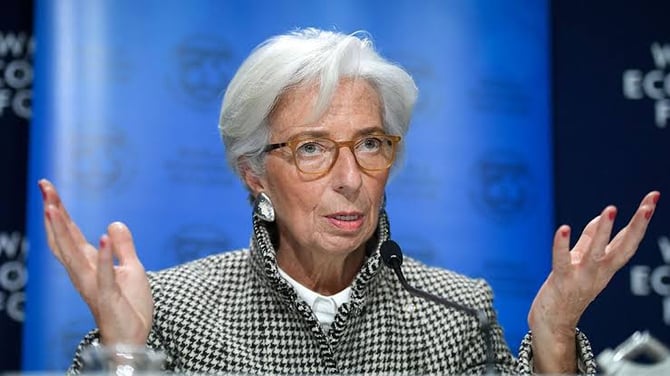Lagarde Foresees Inflation Return to 2% by 2025

European Central Bank (ECB) President Christine Lagarde has projected inflation will reach the bank’s 2% target by mid-2025, crediting the "remarkable" reduction in price pressures over recent years with minimal job losses.
Speaking at a recent event, Lagarde emphasized the success of the ECB’s monetary policies, even amid high energy costs and rising interest rates, currently standing at 4.5%. However, she warned of uncertainties ahead as the global economy navigates transformative changes.
Lagarde highlighted the major challenges in recent years, such as the pandemic, the Ukraine war, and the energy crisis. These disruptions have complicated monetary policy transmission and caused inflation to hover above 5% in 2023. Nevertheless, the ECB’s strategies have proven effective in balancing inflation control with employment stability. Eurozone unemployment remains at a low 6.4%.
Comparing today’s economy to the 1920s, Lagarde noted parallels, including weakened global trade integration and technological advancements, such as AI and fintech. While these innovations improve productivity and credit access, they also pose new challenges for central banks.
What Does This Mean for Me?
Both Europe and the U.S. are restructuring supply chains through near-shoring, aiming to reduce vulnerabilities exposed by global value chain disruptions. As the global economy becomes fragmented, Lagarde stressed that the ECB’s monetary policy must remain flexible, leveraging advanced technologies like AI for better inflation forecasting and economic stability. Despite these challenges, the ECB remains committed to its core goal of price stability, with inflation expected to decline gradually towards its target.
More News
.webp)
Japan’s Rate Shift Is Rippling Through Global Bond Markets
6 days ago

China’s Growth Engine Stalls as Consumers and Investors Pull Back
1 week ago

Egypt’s Recovery Gains Traction as Household Pressure Lingers
2 weeks ago

OECD Warns AI and Tariffs Will Test the Global Economy
3 weeks ago

Zero Tariffs, Higher Drug Bills as US and UK Reset Pharma Trade
3 weeks ago

Catastrophe Bonds Go Global as Climate Risk Meets Yield Hunting
3 weeks ago
.webp)
Canada Shields Steel and Lumber Industries From Tariffs
4 weeks ago

Trump Drops Selected Tariffs in Response to Inflation Pressures
1 month ago